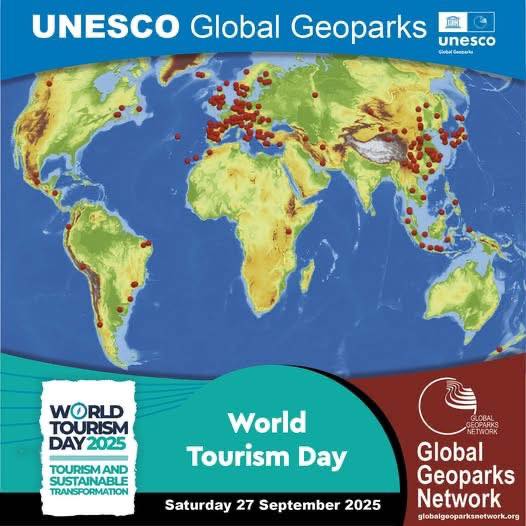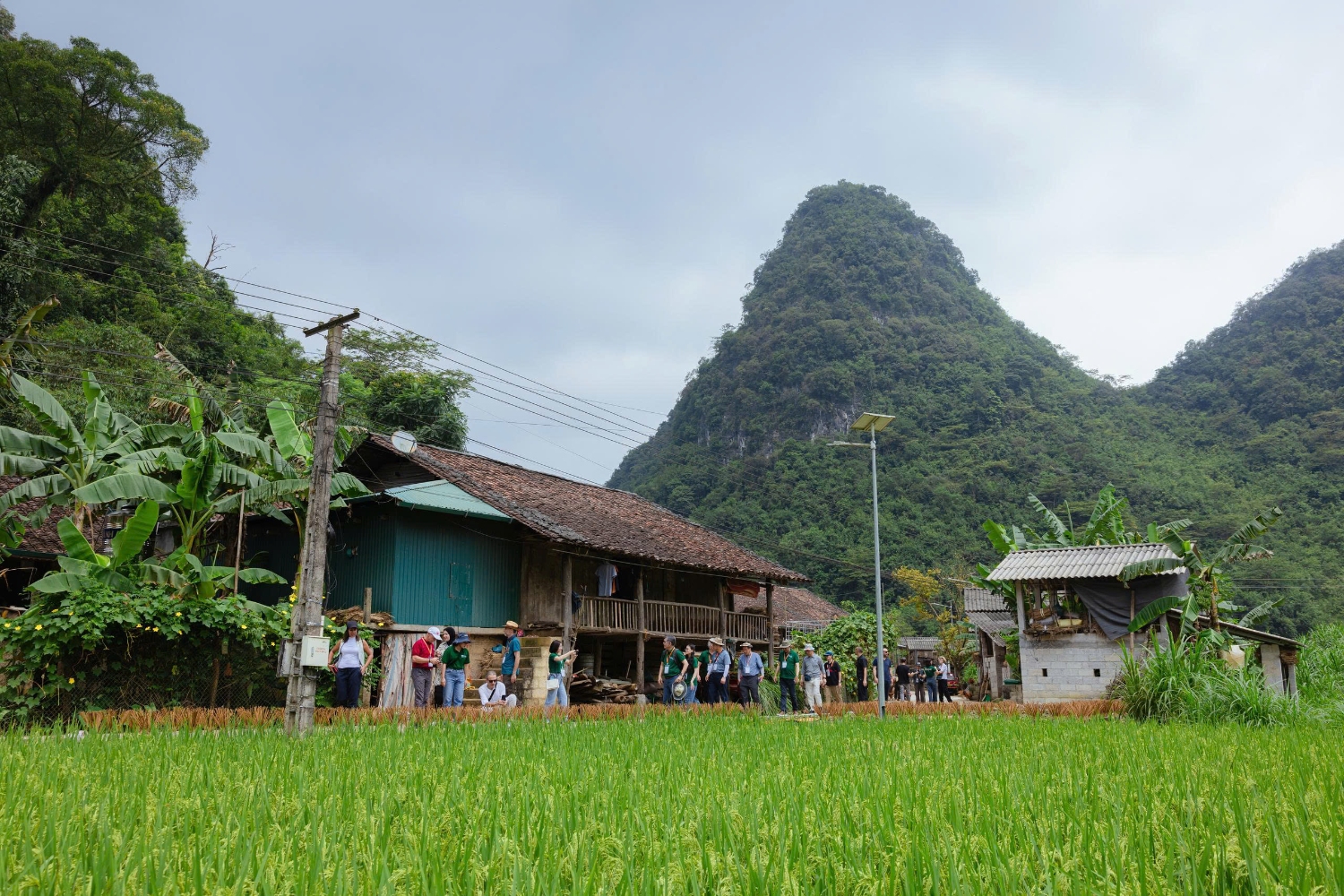“Tourism and Sustainable Transformation” and UNESCO Global Geoparks’ actions

According to the UNWTO, tourism is not only an economic sector but also a gateway to knowledge, employment, and development opportunities for all. To turn that potential into reality, nations must place sustainability, resilience, and social equity at the core, while promoting transparent governance, rational planning, and coordinated monitoring.
In response to the World Tourism Day 2025, the UNESCO Global Geoparks Network with its 229 members across 50 countries reaffirms its commitment to sustainable tourism development. Beyond landscape conservation, Geoparks emphasize integrating the preservation and promotion of geological, cultural, and biodiversity values while improving community livelihoods. Through close cooperation with local residents and support for local entrepreneurship, particularly among women’s cooperatives, households, and youth, Geoparks have demonstrated that tourism can be an important drive for sustainable socio-economic growth.
Non nuoc Cao Bang UNESCO Global Geopark is a land rich in heritage where majestic landscapes converge with over 500 million years of geological evolution and the rich cultural heritage of ethnic communities. Thanks to these advantages, Cao Bang Province has developed four Geopark tourism routes, combining outstanding sites of geological, cultural, historical, and biological significance. Based on the principles of conserving and promoting heritage values and preserving the natural landscape and protecting environment, tourism activities are implemented to improve livelihoods and increase income for local people.

World Tourism Day 2025 once again reaffirms the shared responsibility of governments, businesses, and communities in building a green and sustainable tourism industry so that tourism is not only an momentum for economic recovery but also a bridge connecting nature, culture, and humanity. Responding to this spirit, Non nuoc Cao Bang UNESCO Global Geopark reaffirms its commitment to join the Global Geoparks Network in advancing sustainable tourism, enhancing livelihoods, and bringing tangible benefits to local communities and for future generations.
Author: Luong Thao
Reader Comments
Newer articles
Older articles


